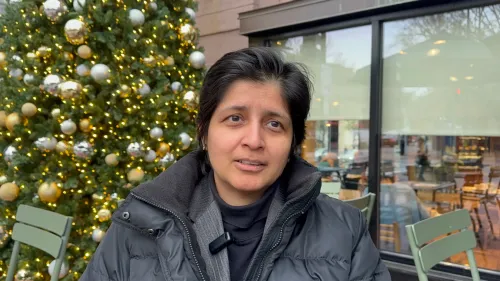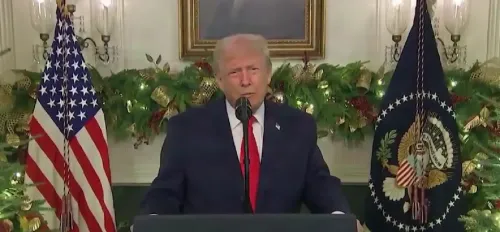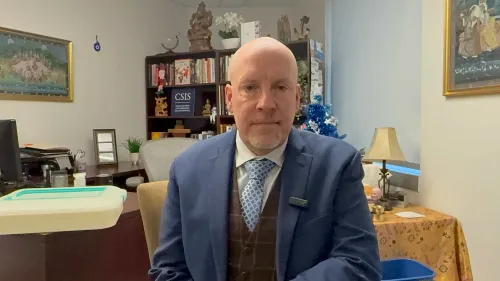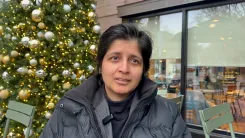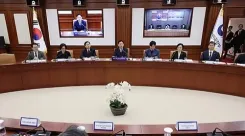Why Did the Bangladesh Court Deny Bail to Chinmoy Krishna Das Again?
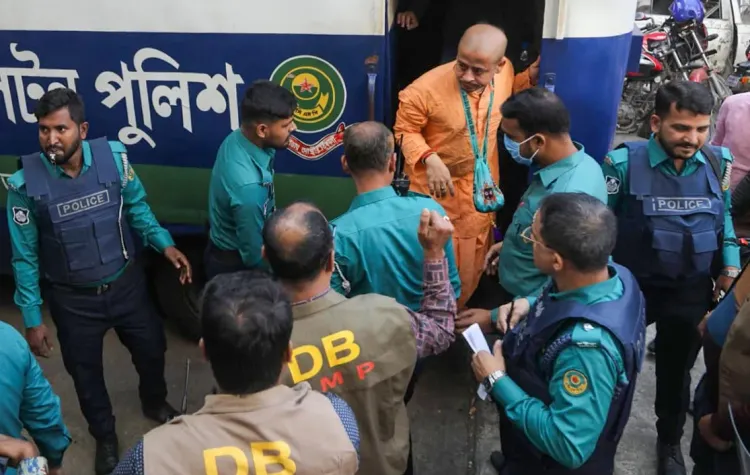
Synopsis
Key Takeaways
- Chinmoy Krishna Das has been denied bail in ongoing legal battles.
- The case involves serious allegations including murder.
- His arrest has led to significant protests from the Hindu community.
- The political context in Bangladesh is marked by instability.
- India has raised concerns over the treatment of Hindu minorities.
Dhaka, July 24 (NationPress) A court in Bangladesh has once again denied bail to Chinmoy Krishna Das, a well-known leader of the Hindu community and spokesperson for the Bangladesh Sammilito Sanatani Jagaran Jot. This ruling comes amid five ongoing cases against him, including one related to the alleged murder of Saiful Islam Alif, a lawyer from Chattogram.
The decision was made by Judge Hasanul Islam of the Chattogram Metropolitan Sessions Court after a thorough hearing, according to local news sources.
Confirming the news, Assistant Public Prosecutor (APP) Raihanul Wazed Chowdhury stated, "Chinmoy was brought to the court under heavy security around 11:15 am, and after the proceedings, he was returned to custody."
During the hearing, Chinmoy Das was defended by a legal team led by senior attorney Apurba Kumar Bhattacharya from Dhaka. "We requested bail, but the court dismissed our applications. We urged the court to ensure his medical care given his health concerns," quoted The Daily Star.
The allegations against Das include the murder of lawyer Alif, three charges under the Explosives Act for his purported role in vandalism and violence on November 26 of last year, and another case initiated by Alif’s brother, Khane Alam.
On April 30, the Appellate Division of the Bangladesh Supreme Court suspended a High Court order that had granted bail to Das in a separate sedition case.
Chinmoy was taken into custody in Dhaka on November 25 of last year and was sent to jail the following day after his bail plea was denied by a Chittagong court. On December 11, the same court once again refused bail.
The arrest of Das triggered significant protests from the Hindu community in Bangladesh, a nation engulfed in political instability since the removal of former Prime Minister Sheikh Hasina in August 2024, amidst widespread violent protests.
Since the ousting of Hasina and the establishment of an interim government led by Mohammad Yunus, there has been an uptick in attacks on the Hindu minority in the country.
India has taken a hard stance on the rights of the Hindu minority, repeatedly asserting that there is systematic persecution of Hindu communities under the Yunus-led administration.


